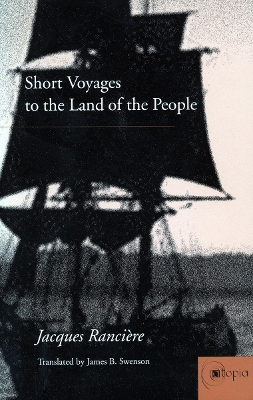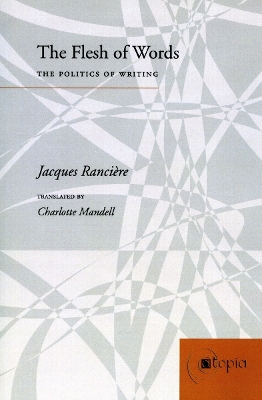Atopia: Philosophy, Political Theory, Aesthetics
2 total works
This book analyzes a range of texts that seek, in different ways, to represent "the people." Ranciere approaches these texts as travel narratives or ethnographies whose authors have traveled not to distant or exotic lands but across class lines. In this truly comparative study, he examines Wordsworth's poetry, the utopian discourse of the Saint-Simoniens, the correspondence and theater of Buchner, Claude Genoux's Memoires d'un enfant de la Savoie, Michelet's theories of history, the prose and poetry of Rilke, and the performance of Ingrid Bergman in Rossellini's postwar film Europe 51.
Ranciere examines the various forms of displacement that affect his subjects, enabling each to become foreign to the sites and trajectories commonly known as reality.
He argues convincingly that "the people" have no proper signification in the texts under consideration, instead, they function as points of reality upon which the voyager can drape a conceptual framework shaped by the circumstances not of the other, but of the self.
This new collection of challenging literary studies plays with a foundational definition of Western culture: the word become flesh. But the word become flesh is not, or no longer, a theological already-given. It is a millennial goal or telos toward which each text strives.
Both witty and immensely erudite, Jacques Rancière leads the critical reader through a maze of arrivals toward the moment, perhaps always suspended, when the word finds its flesh. That is what he, a valiant and good-humored companion to these texts, goes questing for through seven essays examining a wide variety of familiar and unfamiliar works.
A text is always a commencement, the word setting out on its excursions through the implausible vicissitudes of narrative and the bizarre phantasmagorias of imagery, Don Quixote's unsent letter reaching us through generous Balzac, lovely Rimbaud, demonic Althusser. The word is on its way to an incarnation that always lies ahead of the writer and the reader both, in this anguished democracy of language where the word is always taking on its flesh.

